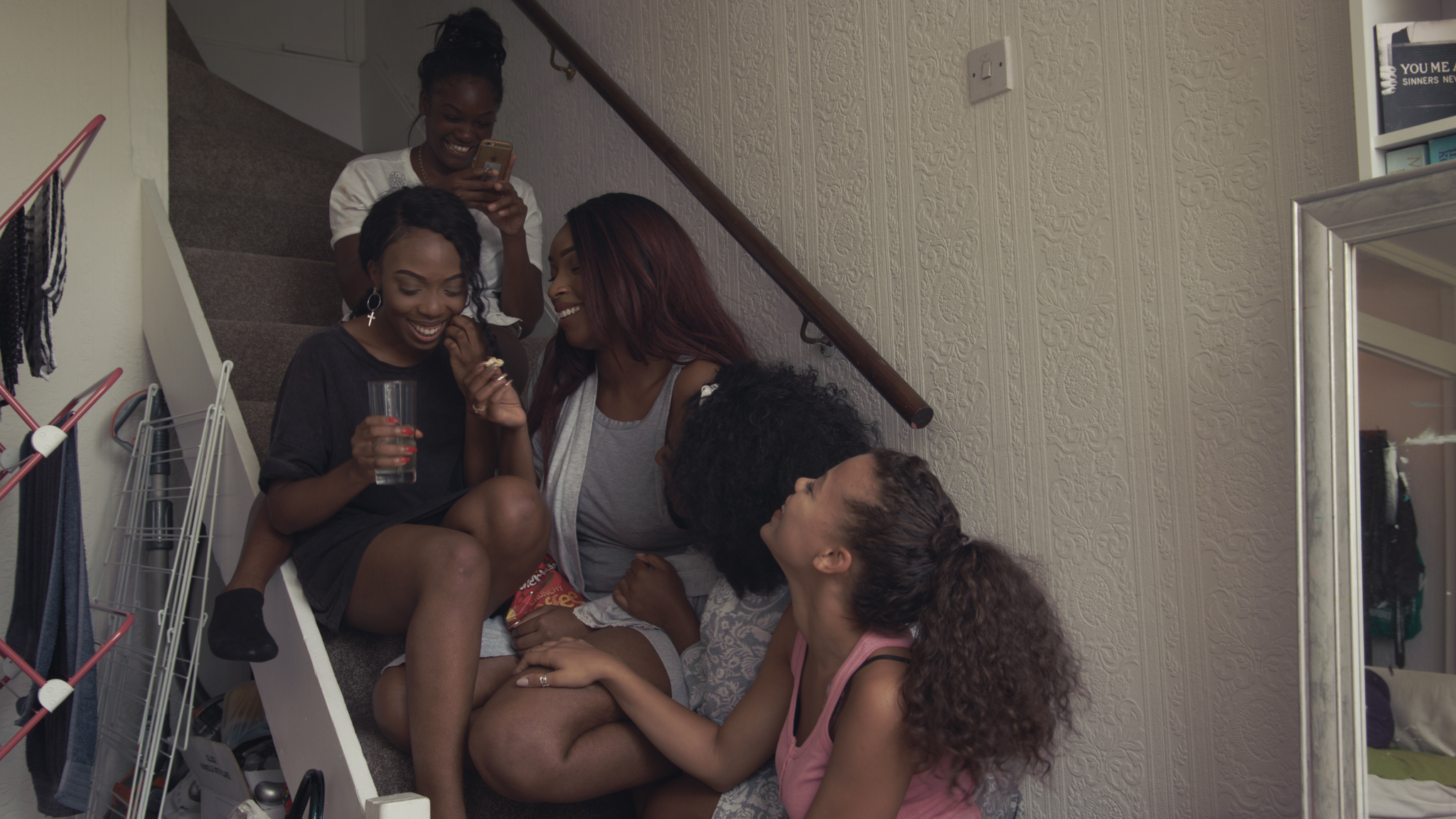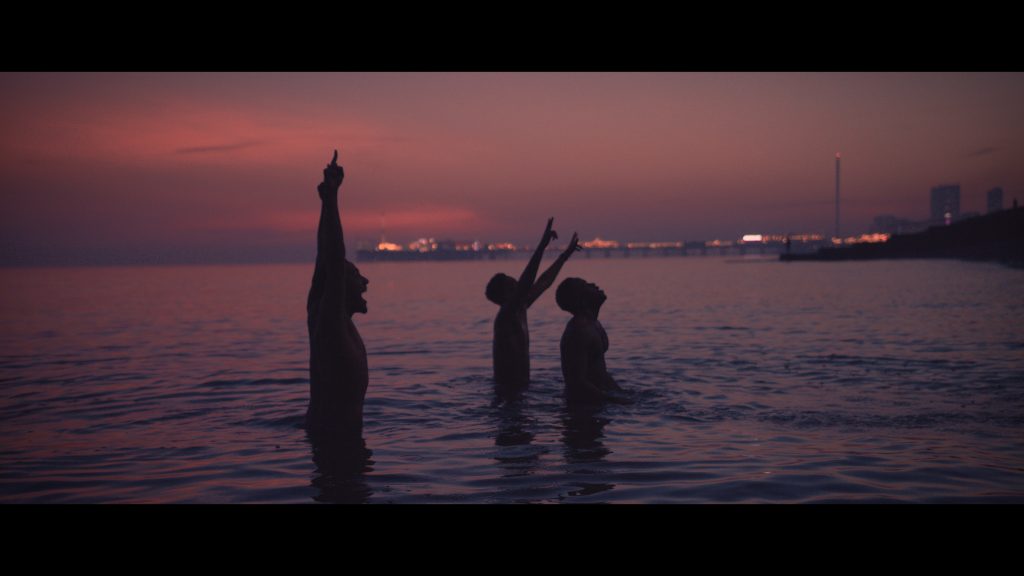
For Black History Month, Remi Moses, an independent filmmaker, premiered two short films, Pack of Wolves and Pride of Lions to a sold-out audience at the Genesis Cinema. They are two fictitious stories (though very much grounded in, and inspired by reality) about black friendship, black love, and black culture. Pack centres around five male friends and Pride around five female friends, with each intertwining into the other’s narrative.
“Remi presents a close, solid relationship between these characters where young black men can talk, hug and speak intimately without feeling “weird” about it”
Remi invents a character named Ryan (played by CJ Beckford) in Pack who is about to be a father. Having grown up without one, however, he finds himself doubting his ability to play the role. He shares his doubts and feelings with his close group of friends uninhibitedly. Remi presents a close, solid relationship between these characters (ensemble cast made up of Arnold Jorge, Landry Adelard, Ben Sarpong, Jaz Hutchins and Leo Watson Roberts) where young black men can talk, hug and speak intimately without feeling “weird” about it. The film expertly tackles the topic of masculinity and its fluidity in the black male community. One of the more poignant moments is a stunning scene on Brighton’s pebbled beach as the sun sets, where all five friends speak as freely as the movement of the sea ahead of them. It feels nostalgic of Barry Jenkin’s Moonlight and the use of the beach as an escape from the stereotypes and harshness of the real world, a place where the black man can express vulnerability.
In Pack, Remi shows that he truly understands the human connection that forms real bonds and friendships. He convincingly portrays male characters tussling with questions of identity and love, this all revealed through an economic use of dialogue when they converse. Though this presentation of male intimacy is arguably very modern, it’s also very London. There is a contrast between the affectionate way the characters behave in private to the way they are in public, for example, when Ryan is faced with a confrontation, his friends are there to back him, armed with a hammer – letting the opposition know that they are up for a fight if needs be. There’s an aggression there when with their peers which is something young black men from London may be able to relate to. Remi does well in showing us the complexities and contradictions of young black men in Pack of Wolves.

Remi Moses, ‘Pack of Wolves’, 2017
Conversely, in Pride, the protagonist of the story is Nichole (played by Andrea Ali), Ryan’s girlfriend. She, too, is thinking about becoming a mother among her friends but her lack of faith is in them, not herself; wondering whether they’ll be a good influence in her child’s life. Remi says, “it was always meant to be a second perspective of the events during Pack.” And it does feel that way – a second perspective, and second best. It’s a bigger, bolder and messier task taking on the issues within the black female community as a man, even if it is as a black man. The bravest part of Pride is that which takes on the issue of colourism within the black community, particularly the colourism that exists between a dark skinned black woman and a light skinned black woman. And I say brave because there was very little time to give it any real depth in this short film, but Remi brings light to the conversation nonetheless.
Much like Spike Lee did in his 1988 film, School Daze, where he takes on two emotionally charged subjects that divide black women: complexion and hair, Remi tackles this through a tough-minded confrontation between characters Louise and Isobel following a build-up of hostility between them in previous parts of the film. Louise being a mixed-race woman who feels just as black as Isobel, a fully black, darker skinned woman. The weighty dialogue between the two deserves praise, Remi’s writing summons an immense amount of empathy for both characters: Isobel saying, “you don’t know what it means to be black” and Louise retorting “I am a black woman, and I say that with my chest.” As a black woman, I’m all for this acknowledgment of the sharp split within our population, however, it felt narrowly explored. Isobel’s problem with Louise comes from the sensitive space of feeling that all the guys look at Louise instead of her, but for me there needed to be a deeper reason for the level of malice. That’s not to downplay how huge the concept of beauty is for black femininity, or the captivating and compelling performances by Rita Balogun and Simona Zivkovska as Isobel and Louise. However, the discussion of colourism is not exclusive to beauty ideals.
“This suggests that being lighter in complexion is the only way for black women to be represented in the media, and perpetuates marginalisation of darker skinned people”
The media presents the idea that white, or anything close to white, is better, and that which is “blackest”, is wrong and unappealing. This sort of colourism is to blame for the lack of representation of darker skinned women in our media – when called out to cast more black women, many productions often choose the closest to white they can get – lighter skinned black woman. This suggests that being lighter in complexion is the only way for black women to be represented in the media, and perpetuates marginalisation of darker skinned people, becoming a catalyst for brewing conflict. In a way, it is repetitive of slavery – the ultimate dehumanization of black people. Dehumanization meaning making black people, or the darker skinned black women in this case, feel less than and labelled as the inferior group, therefore being deprived of work, of representation that isn’t a pervasive negative stereotype, and much more. While Remi touches upon colourism, it would have been interesting to see some of these deeper tensions explored.
“What makes this an overall incredible project though is that Remi Moses has created two films that don’t concern themselves with a theoretical white audience”
Pack is a film that is heartfelt, honest and feels like an inside story. It’s clear that Remi comes from the world he is dramatizing. It’s not that the story is particularly original but it is refreshing, clear in its ambitions and authentic. Pride seems a little less so, I feel the main narrative of the story is overshadowed by the brief look at black on black oppression through colorism. What makes this an overall incredible project though is that Remi Moses has created two films that don’t concern themselves with a theoretical white audience. They are films about black people, for black people. While white people can have a look in if they want, that’s all, and represents a great example of what Black History Month should be about.









